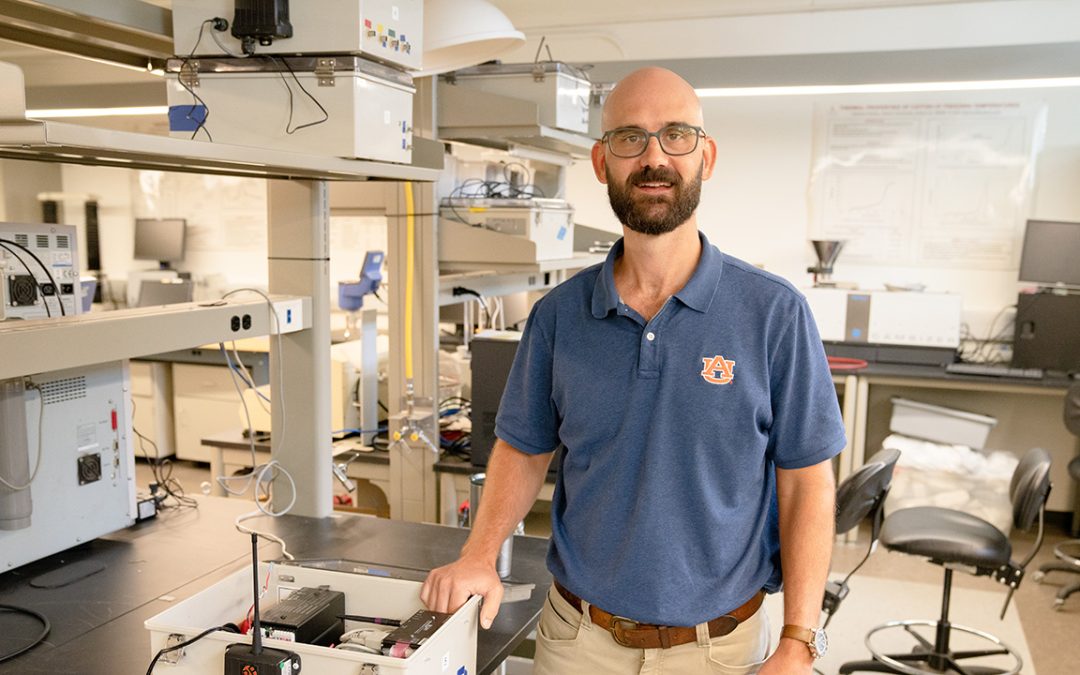
The College of Agriculture and Alabama Agricultural Experiment Station’s efforts to establish an off-bottom oyster-culture industry along the Alabama coast was one initiative that contributed to Auburn’s selection as a 2015 Innovation and Economic Prosperity University Award winner.
Two inventive College of Agriculture programs that are spurring significant economic growth and benefiting citizens throughout the state and region helped Auburn University win a national 2015 Innovation and Economic Prosperity University Award from the Association of Public and Land-Grant Universities.
Auburn received the honor in the “place” category for excelling in community, social and cultural development work. Auburn’s application for the award highlighted three programs: the College of Agriculture’s National Poultry Technology Center and off-bottom oyster farming initiative along Alabama’s Gulf Coast, along with the College of Architecture, Design and Construction’s Rural Studio program.
The National Poultry Technology Center works hand-in-hand with poultry growers and industry in Alabama and across the U.S. to improve the bottom-line profitability and quality of poultry production by providing timely applied research and education in housing, equipment, energy and environmental controls. According to 2013 data, the center, created in 2007, saves Alabama’s estimated 3,000 poultry producers $30 million a year in energy, feed and repair costs.
The oyster-culture project at the Auburn University Shellfish Laboratory on Dauphin Island is providing seafood producers instruction, research and outreach in shellfish ecology and production, specifically in terms of raising top-quality oysters for the premium half-shell market. Commercial oyster farms not only supplement the wild-caught oyster supply but also help stimulate the coastal economy.
In 2014, Auburn University had an overall $5.1 billion impact on Alabama’s economy and created 23,600 jobs, in addition to direct employment, a recent self-study indicated.
Auburn was one of 18 universities nationwide named to the Association of Public and Land-grant Universities’ third annual class of Innovation and Economic Prosperity Universities and was the only Alabama university recognized. The designation identifies institutions that advance the economic well-being of their states, regions and nation through a variety of efforts.




